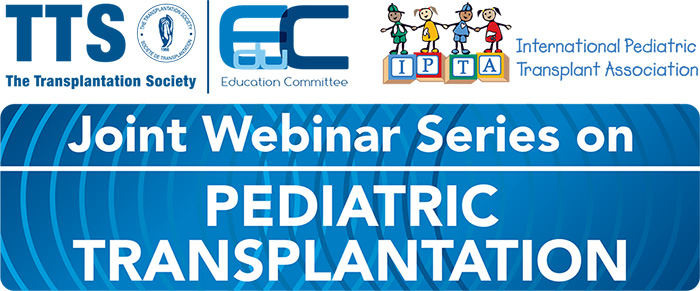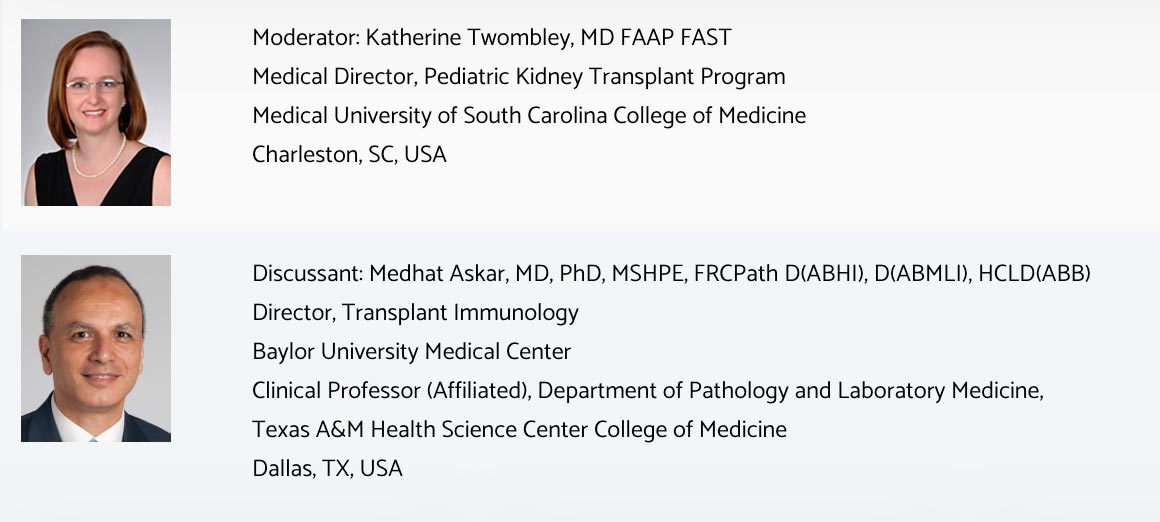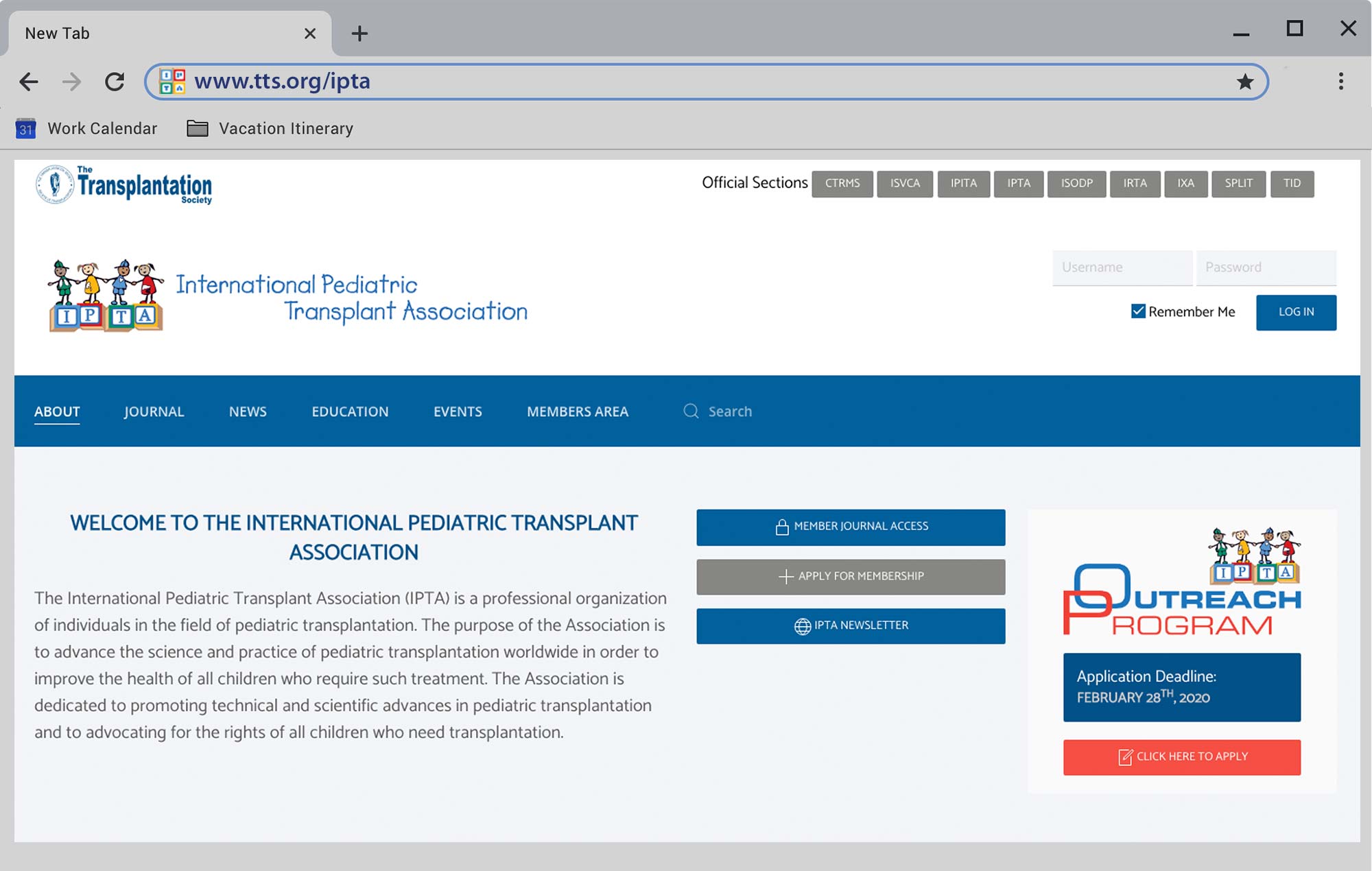IPTA Newsletter - December 2019

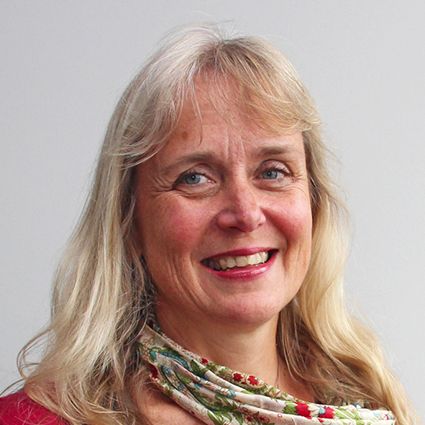
Holiday Greetings from Professor Mignon McCulloch, President of IPTA
Dear All
It is my privilege to be the President of a professional organization which has as our goal the advancement of science and practice to improve the health of children who require transplantation in the worldwide community, and to advocate for their rights.
As 2019 draws to a close and we enter the Holiday season, it is a good time to reflect on what we have achieved this year. The highlight has been the very successful IPTA 2019 Congress in Vancouver hosted by Anne Dipchand as President, with over 500 delegates, which was a wonderful opportunity for sharing of knowledge and networking with friends and colleagues.
The Scientific Advisory Committee (SAC) produced an excellent academic content under Catherin Parker’s wise guidance with the Local Organising Committee under Tom Blydt-Hansen. Amongst their other duties, they also produced spectacular weather in Vancouver for the duration of the meeting. A special thanks to Isabel Stengler and her team for ‘making it all happen’ and to Sondra Livingston, Robert Colarusso, and the rest of the TTS team for all of their efforts in making this a successful meeting.
Our journal Pediatric Transplantation has also had a successful year under the leadership of our new editors Burkhard Tönshoff and Sharon Bartosh. Since this meeting, our IPTA Council has had some new members rotate onto the Council to join our wise group to ensure collective international input. I am grateful to those who have rotated off and know that they have been available for ongoing input when needed, and I am also excited about the new members and the talents that they bring to the organisation.
The various IPTA sub-committees have been hard at work with new goals and objectives, amongst the highlights including:
- Education Committee facilitating the first TTS-IPTA joint webinar on Epitope Matching;
- Ethics committee producing thought provoking case discussions and planning ethics-related position statements;
- Outreach committee relaunching their program and developing a collaborative program between Dallas, USA and Bangalore, India, launching in 2020 and exploring multi-lingual patient education resources;
- Membership committee developing new initiatives to increase membership and planning new opportunities for enhanced engagement of members including senior and junior members interaction;
- Allied Health committee providing an excellent pre-congress symposium at the IPTA 2019 meeting together with large numbers of Allied Health colleagues also attending the main congress, developing a survey and planning webinars in the future;
- Publications committee producing our informative newsletters, planned development of a peer mentoring program, and collaboration with the editors of Pediatric Transplantation;
- Infectious Disease committee continuing to be prolific in their aims to spread knowledge about ID in pediatric transplantation with a successful EBV consensus meeting, a number of publications including a PJP survey, Live virus vaccines as well as collaboration with IPTA colleagues across the globe;
- We would also take this opportunity to welcome our newest committee, the Communications committee, who are responsible for developing our social media communications as well as the optimization of a newer IPTA Website.
I would like to thank the IPTA Council as well as the Committees and their respective chairs for being so active and providing valuable input into our organization.
We look forward to our next IPTA congress, 17 – 21 April 2021 in Prague, and thank Lars Pape and George Mazariegos, together with Catherin and Isabel from TTS, who are already hard at work with the SAC in planning this meeting, as well as our local host, Tomas Seeman.
Finally I would like to thank the Executive Committee with Anne Dipchand (Past President) as a wise counsel, Carlos Esquivel (President Elect) for his enthusiasm and support and Lars Pape (Secretary/Treasurer) for his fresh ideas and treasurer input over this year.
I would also like to thank Katie Tait from TTS for her significant administrative support and never-ending cheerfulness.
On behalf of this group, I would like to wish all our members a Happy Holiday season hoping that you do get some ‘time-out’, and especially wishing you special time with your loved ones.
Thank you for all you do in your daily capacity to improve the health of all the pediatric patients in your care, and furthering the mission of our society.
May you all have an exciting start for 2020!
Best wishes
Mignon McCulloch
IPTA President
TTS 2020
We are delighted to confirm that IPTA will have a presence at the 28th International Congress of The Transplantation Society, September 12-16 2020, in Seoul, South Korea.
Our programming will include a pre-Congress session on September 13th from 8am-3pm, 1 SOTA, 1 EMW, and abstract sessions. Please watch out for abstract submission deadlines. We will publish more information on this event closer to the time.

This newsletter’s literary highlights come from Katherine Twombley, Chief, Pediatric Nephrology Interim Chief, Pediatric Neurology, Medical Director, Pediatric Kidney Transplant, Medical Director, Acute Dialysis Units, Medical University of South Carolina
With a shortage of organs in the United States, many people are looking at way to increase decreased donor donation. In a recent article published in Pediatric Transplantation entitled “Crowdsourced analysis of factors and misconceptions associated with parental willingness to donate their child's organs,” Jones et al. took on this very tough but extremely important topic. They evaluated factors associated with parent’s willingness to donate their child’s organs. They sent out surveys using Amazon's Mechanical Turk (MTurk) Prime platform. They targeted 400 respondents and received 425.
Similar to previously reported data, about three quarters of respondents would consider donating their own organs, but only about 65% were actually willing to donate their child’s organs. Unfortunately, less than half of the respondents believed that declaring someone brain dead means that they are dead and lower income respondents were more likely to have this belief.
Black respondents were 5.3 times more likely compared to White respondents and Hispanic respondents were 2.24 times more likely compared to White respondents to think that doctors are “stealing” organs from patients. Black (4.97 times) and Hispanic (2.18 times) respondents were also more likely than White respondents to believe that doctors are declaring patients brain dead based on their skin color or how much money they have. The odds of continuing to have this belief decreased as income increased.
This study highlights the persistent mistrust that some racial and ethnic groups have toward doctors. These beliefs are deeply rooted in past mistreatments as the authors point out (Tuskegee syphilis experiment, Tucker’s Heart, etc.), and we as a community need to make every effort to not only understand these perceptions, but also work hard to address and educate patients about these beliefs.
With the growing use of internet and social media, comes a plethora of misinformation. It is sometimes hard for families to know what information is fake. Interestingly, respondents that had a family member declared brain dead in the past were more likely to donate organs. This really emphasizes the value of what good communication and education with families can do. Future studies will need to look at the best methods of education and communication with families of different socioeconomical and racial backgrounds to improve the relationships we as doctors have with our patients.

Ethics Case: Minors as living donors
Glenda Moonsamy
Charlotte Maxeke Johannesburg Academic Hospital, Department of Paediatrics and Child Health
University of the Witwatersrand, Faculty of Health Sciences
Johannesburg, South Africa
Case study:
A female baby was born to teenage parents with bilateral multicystic dysplastic kidneys and renal failure. Her family was counselled with respect to her condition and poor prognosis immediately after birth. Both her parents were scholars. Her mum was 16 and dad was 17 years old respectively. However, both parents had supportive extended families even though their socio-economic status was poor. The parents had also ended their relationship prior to the birth of the baby. The mum and her family were the primary caregivers.
Despite her renal failure, the baby thrived and at the age of 6 months, after careful consideration, it was decided that she be initiated onto peritoneal dialysis. The year post dialysis was difficult, with the child developing multiple bouts of peritonitis and having a short period of intermittent hemodialysis. She eventually settled on peritoneal dialysis and reached a weight suitable for dialysis at 2 years of age. During this period, despite the mum attending school full time, she and her family were very compliant, responsible and demonstrated unwavering support for their little girl. The parents were again counselled with respect to transplantation and being potential related living donors, to which they both agreed. In Johannesburg, the donor age requirement is 21 years.
Her case was presented to the renal transplant panel and after some deliberation, she was accepted for both a related living donor and cadaver transplant. Her dad was a blood group match and was worked up as a potential donor. He was 19 years old at the time and again, was still in school. However, during this period a cadaver donor became available and our patient was successfully transplanted.
Ethics comment:
In an era where the demand for organs outweighs the supply, careful consideration of the potential for expanding the related living donor pool has to be taken into account. Using minors as donors is a possible but controversial solution. The KDIGO guidelines accept an age requirement of 18 years. But at 18 years (or even 21 years for that matter) are you mature enough to give an informed consent, identify the risks to yourself and decide on your moral obligation? The risks to benefit need to be carefully weighed in each individual case.
There are many variables contributing to the development of life skills and maturity, including life experience, personality, morals, values and even genetics. This makes an age criteria difficult. However, it is a necessary requirement in our circumstances when considering a potential living donor. It should be taken into account together with the other pre-requisites like psychological and social functioning to determine whether the minor is a mature minor with the appropriate level of neurocognitive and emotional development.
With respect to the case above, the situation is a bit unique, but does an unplanned teenage pregnancy award you such insight and maturity, despite being an emancipated minor? The birth of a child is certainly a life changing experience, and in this scenario, it was compounded by a baby with chronic kidney disease. The family’s investment into the baby’s care helped in assessing the situation but it did not make the decision to initiate dialysis or use the parents as related living donors any easier.
UPDATE FROM THE OUTREACH COMMITTEE

Dear IPTA Colleagues,
The Outreach Committee is pleased to announce that applications for the 2020 Outreach Program are open. The program supports emerging centres that seek to develop or expand/enhance care in existing transplant programs.
Usually, an emerging centre will have identified a suitable supporting centre to assist them with this program; however it is possible the Outreach Committee can assist in this process.
The application package, guidelines and useful reference documents are available on the Outreach Program section of the IPTA website.
Application Deadline: February 28th, 2020
With many thanks,
Fiona Mackie
Chair, Outreach Committee
UPDATE FROM THE MEMBERSHIP COMMITTEE

Dear IPTA Colleagues,
The Membership Committee is interested in creating a database of expertise among our members, with the goal of highlighting the breadth of our membership and also utilizing the database as a resource for members looking to connect with others in their area for mentorship, collaboration, etc. We are also interested in gaining a better understanding of the diversity of languages spoken among our membership for future educational opportunities. Please email Katie Tait, katie.tait@tts.org, with the following information:
- Areas of expertise
- Languages spoken
- Are you interested in being approached to participate in future educational opportunities or to be contacted by members from other centres?
Many thanks for your support,
Cozumel Pruette
Chair, Membership Committee
EXCITING NEWS FROM ID COMMITTEE

Dear IPTA Colleagues,
The IPTA IDCARE committee has completed initiatives related to:
how to approach SOT candidates with active infections (https://www.ncbi.nlm.nih.gov/pubmed/30838753), review of recent CMV guidelines with pediatric-specific cases (https://onlinelibrary.wiley.com/doi/full/10.1111/petr.13276), and emerging mosquito-borne viruses and impact on transplant (https://www.ncbi.nlm.nih.gov/pubmed/30338634). Committee members have actively participated in consensus meetings related to the diagnosis, management, and prevention of EBV-associated PTLD, as well as an evidence review of live-attenuated virus vaccination in selected SOT recipients, with expert recommendations recently published (https://onlinelibrary.wiley.com/doi/full/10.1111/petr.13571). The IDCARE committee continues to work on various infectious disease topics including providing updates on influenza – infection and vaccination for this season, summarizing a multidisciplinary approach to the evaluation of diarrhea in solid organ transplantation recipients, assessing prophylaxis strategies for PCP and toxoplasmosis across pediatric SOT centers, reviewing infectious complications of asplenia, including optimizing prevention strategies, and summarizing the results of a survey regarding contemporary practice for live-attenuated vaccination in solid organ candidates and recipients. The IDCARE committee continues to welcome IPTA members to provide feedback for topics of interest and potential collaborative projects.
Many thanks,
Monica Ardura
Chair, ID Committee

IPTA READERSHIP SURVEY
FOR READERS OF PEDIATRIC TRANSPLANTATION
Pediatric Transplantation is the official journal of IPTA. At the link below, you will find a survey created by the IPTA Publication Committee and IPTA Leadership regarding the journal. We hope to continue to improve the services the journal provides to you, our members. This survey will help us identify areas to expand or improve. We promise it will not take more than a few minutes to fill out.
TTS ANNOUNCEMENTS

On behalf of IPTA, we wish you a happy holiday season, with our best wishes for 2020!
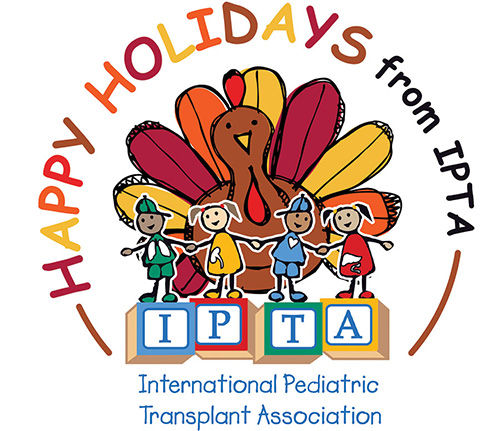
Social
Contact
Address
International Society of Uterus Transplantation
c/o The Transplantation Society
740 Notre-Dame Ouest
Suite 1245
Montréal, QC, H3C 3X6
Canada


